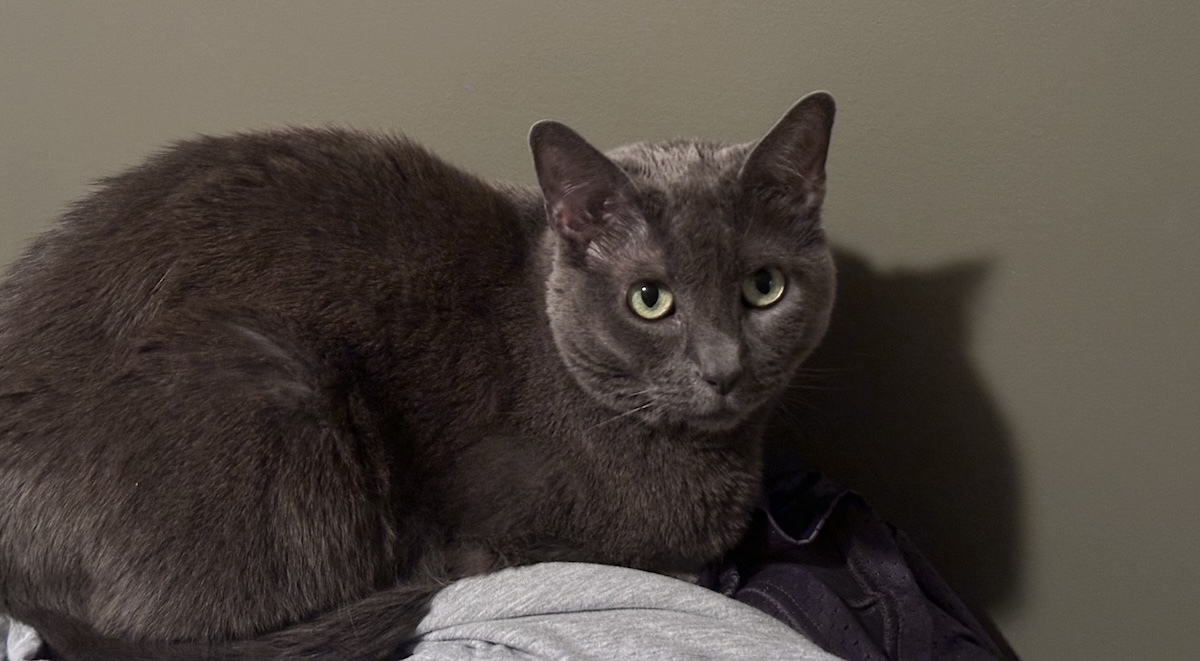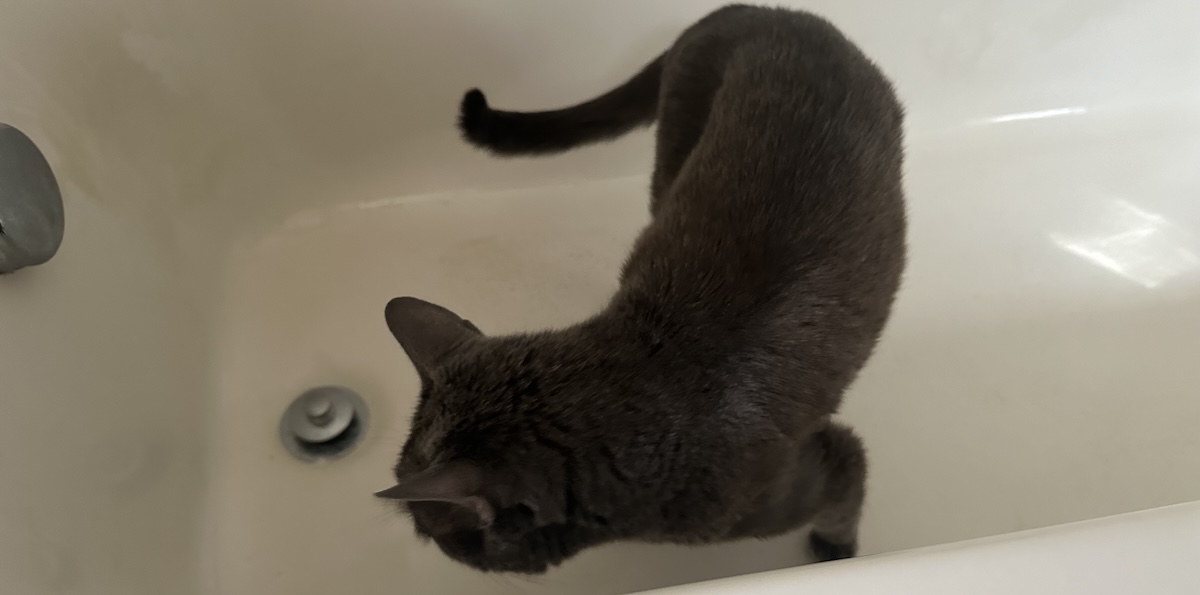The post Why Cats Hide in Tiny Spaces: Olga Looks for Cover by Christopher Bays appeared first on Catster. Copying over entire articles infringes on copyright laws. You may not be aware of it, but all of these articles were assigned, contracted and paid for, so they aren't considered public domain. However, we appreciate that you like the article and would love it if you continued sharing just the first paragraph of an article, then linking out to the rest of the piece on Catster.com.
Hi, I’m Christopher! Read my introduction to learn more about me and my silly Russian Blue cat, Olga.
Domestic cats are talented climbers, leapers, and hunters, and although most love to view their environments from elevated positions, they also enjoy hiding in cramped spaces. Squeezing their bodies into small spaces is a skill most dogs probably envy, but it comes naturally to felines. They have an anatomical advantage; unlike humans, their shoulder blades and collarbones are connected to other body parts by muscles, not bones.
Fearful Hiding
When homes become too chaotic or noisy for cats, they usually run and hide. It doesn’t seem remarkable or out of the ordinary, but I’m impressed by how quickly Olga disappears when she’s scared or ready to play. If someone in my neighborhood sets off a bottle rocket, Roman candle, or firecracker, Olga breaks the sound barrier when she runs for cover.
Thunderstorms don’t faze her, but she’s miserable on the 4th of July. It’s the only time of year she spends hours hiding under the couch, and the terrified expression on her face makes me feel sorry for her.

Hiding to Relax and Annoy Humans
However, she also hides every morning after eating breakfast when she’s content. Hiding because of fear isn’t unusual for cats, but I think they also enjoy it when they’re not stressed or frightened. Cramming themselves into tiny spaces may make them feel more secure, and some cats understand how hard it is for humans to find them, and they enjoy watching their owners trying to locate them.
Olga usually runs up to me if I call her name, but if she sees me packing my bags for a trip or hauling the cat carrier out of the closet, she finds an effective hiding spot and won’t respond to my calls. Her morning hiding spot is under the bed, but when she doesn’t want to be found, she hides in the bathroom or behind a cabinet in the living room.
Skillful Hiding
Sometimes, she hides in the bathtub, and once, after searching my house for 30 minutes, I found her behind the toilet. Discovering her hiding spot hurts her pride, and she lashes out when I try to pick her up. When she was a kitten, she was more violent and often used flatulence to convince me to put her down. Thankfully, she no longer uses that defense mechanism.

It’s irritating when you can’t find a hidden cat, but Olga isn’t as difficult to locate as my last cat. My Siamese cat rarely kept his mouth closed unless he was eating, sleeping, or hiding, and he was a talented escape artist. He didn’t stay in one place but moved around as I searched for him.
He escaped when I took him to the coast to visit my friends several years ago. We searched for hours and even had the local Sheriff help after he questioned us about why we were creeping around a cemetery in the middle of the night.
At some point during the search, he ran back into the house, and I found him in the kitchen cupboard behind the canned goods. Olga isn’t as devious when she hides, and I’m lucky that she’s never tried to run outside.
The post Why Cats Hide in Tiny Spaces: Olga Looks for Cover by Christopher Bays appeared first on Catster. Copying over entire articles infringes on copyright laws. You may not be aware of it, but all of these articles were assigned, contracted and paid for, so they aren't considered public domain. However, we appreciate that you like the article and would love it if you continued sharing just the first paragraph of an article, then linking out to the rest of the piece on Catster.com.
from Catster https://ift.tt/qMCJcwk
